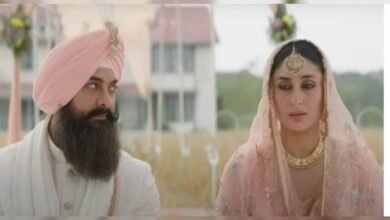The Reason Jaya Bachchan Finally Said Yes To Amitabh Bachchan’s Male-Centric Zanjeer: “Temptation Was My Co-Star”

New Delhi:
Jaya Bachchan walked down memory lane and revealed why she didn’t want to be a part of “male-centric” Zanjeer in the docu-series Angry Young Men. Jaya Bachchan eventually acted in the film and also disclosed what made her change the initial decision. “I didn’t want to do Zanjeer. I basically never wanted to be a part of a male-centric cinema. It was a male-centric film. Salim sahab and Javed sahab, they were very straightforward. They had tried a lot of other women actors, but of course, they all had refused. And they said, ‘You can’t say no, we need you’. Of course, another temptation was my co-star. So I thought at least we’d get to spend some time together.” For the unversed, Prakash Mehra directed Zanjeer. It featured Amitabh Bachchan, Jaya Bachchan, Pran, Ajit Khan and Bindu.
Zanjeer also marked an era in the history of Hindi cinema ushering in a new kind of hero – Angry Young Man. Reflecting upon the impact of their creation, Salim Khan said, “A new hero stormed into the (Hindi) film industry after Zanjeer. This is a new hero. A hero who doesn’t sing songs doesn’t romance, doesn’t break into comedy, bakwaas (nonsense) nahi karta hai. The other characters were doing all that. But not the hero.”
Jaya Bachchan and Amitabh Bachhan co-starred in films like Abhimaan (1973), Chupke Chupke, Mili and Sholay (1975), Silsila (1981), and Kabhi Khushi Kabhie Gham (2001). Jaya Bachchan was last seen in Karan Johar’s Rocky Aur Rani Kii Prem Kahaani. Meanwhile Amitabh Bachchan was last seen in Nag Ashwin’s Kalki 2898 AD.
Angry Young Men is a docu-series, released on Amazon Prime, charting the glorious journey of the legendary screenplay writers Salim Khan and Javed Akhtar. Angry Young Men has been produced by Salman Khan Films, Excel Media and Entertainment and Tiger Baby, along with Salman Khan along with Salma Khan, Ritesh Sidhwani, Farhan Akhtar, Zoya Akhtar and Reema Kagti and it has been directed by Namrata Rao.
Source link





